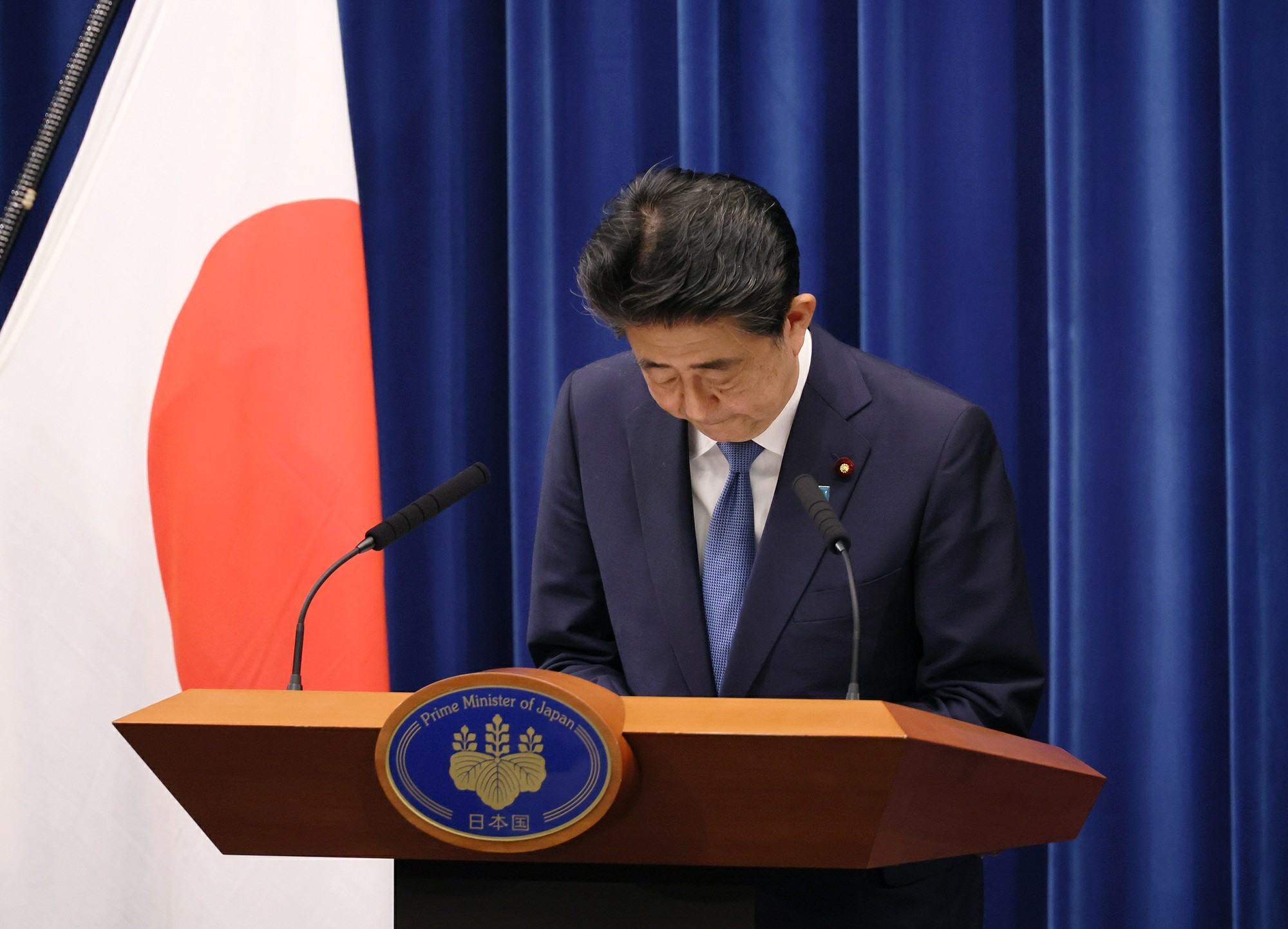Issue:
July 2022
Are Shinzo Abe’s numerous media appearances a prelude to a Kantei comeback?

Barely a day goes by without a report in Japan’s media about the latest utterance from Shinzo Abe. It is reasonable to think that the former prime minister, who resigned almost two years ago, would have faded from the pages of newspapers and and TV screens by now.
But he is still here. As leader of the largest faction in the ruling Liberal Democratic Party (LDP), Abe apparently enjoys special status – although previous holders of that position did not have nearly as much exposure.
His every opinion on the issue de nos jours - Ukraine, Taiwan and nuclear weapons, to name but a few – is taken as a cue to report as if he were still head of the government.
Most of the media do not, however, take the time to investigate Abe’s alleged involvement in political scandals. Instead, he is invited to express his views on a plethora of subjects - the threat from China, the defense of Taiwan, policy toward Russia. Very few journalists take him to task on difficult subjects much closer to home.
To date, no one has even challenged the claim that his resignation in 2020 was purely down to a recurrence of a chronic health issue.
In recent weeks, reports have emerged that the beverage giant Suntory provided free wine and other drinks at dinner receptions parties held the night before cherry-blossom viewing events.
These receptions, arranged for Abe’s friends and supporters, have been in the public realm for months. Yet despite claims that electoral laws were violated, Abe has never been held to account.
A handful of mainly brief articles reported on requests by Hiroshi Kamiwaki, a professor at Kobe University, and groups of citizens that prosecutors look into allegation over electoral law violations in regard to Suntory’s generous gifts, which were worth an estimated ¥1 million over three years (2017, 2018, 2019), according to the Tokyo Shimbun’s June 9 edition. While some sections of the media – namely the Tokyo Shimbun and the Asahi Shimbun – have reported the allegations, no investigation has been launched, and Abe continues to wield his influence in the LDP behind the scenes.
In his numerous appearances on TV and online, as well as newspaper interviews, Abe makes comments that are inevitably picked up and worked into the narrative surrounding the current prime minister, Fumio Kishida. This is clear from an article published by JB Press on June 27th. Its title: What the always monotonous Kishida should learn from former Prime Minister Abe.
On the other hand, Abe observes a stoic silence when opposition lawmakers address his own record. No wonder: he lied to the Diet on more than 100 occasions while prime minister, and the scandal over Moritomo Gakuen rages on.
Sports newspapers are particularly adept at turning even a brief comment into an article that quickly attracts clicks on Yahoo News and other platforms. The door to the media has remained wide open to Abe since he resigned in August 2020 in the midst of the coronavirus pandemic, citing ill health. The campaign for the forthcoming upper house elections has only accentuated his presence, with frequent campaign appearances alongside LDP candidates.
It is hard not to wonder if he is preparing to make yet another comeback as LDP head and prime minister once the pandemic and the current cost of living crisis have subsided. Remember, he has yet to achieve his overriding political ambition: to revise the Japanese constitution for the first time since it came into force in 1947.
Members of the government also appear top sense that a comeback is a distinct possibility.
On June 24, one magazine reported the dismissal of Kazuhisa Shimada, a high-ranking official in the Defense Ministry, who had been appointed by Abe in 2019 after working closely with him the previous six-and-a-half years as a prime ministerial aide.
Shimada’s role at the ministry was to push calls by the rightwing of the LDP to raise defense spending to 2% of GDP. The Kantei fired Shimada against the wishes of the defense minister – and Abe’s younger brother - Nobuo Kishi. And according to the Sankei Shimbun, the chief government spokesman, Hirokazu Matsuno, even hung up on Abe when he called to protest. Kishida, meanwhile, insisted he had played no part in this apparent Trojan Horse move.
Karyn Nishimura is a correspondent for the French daily newspaper Libération and Radio France.

